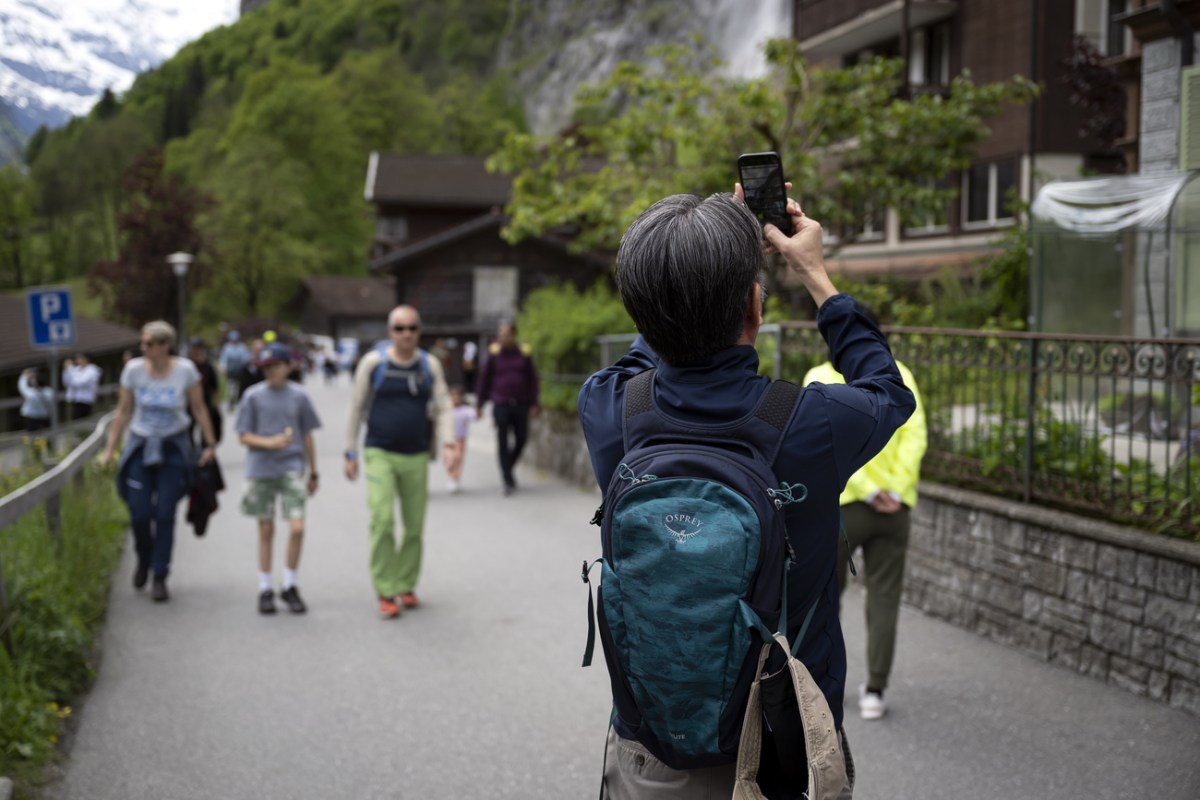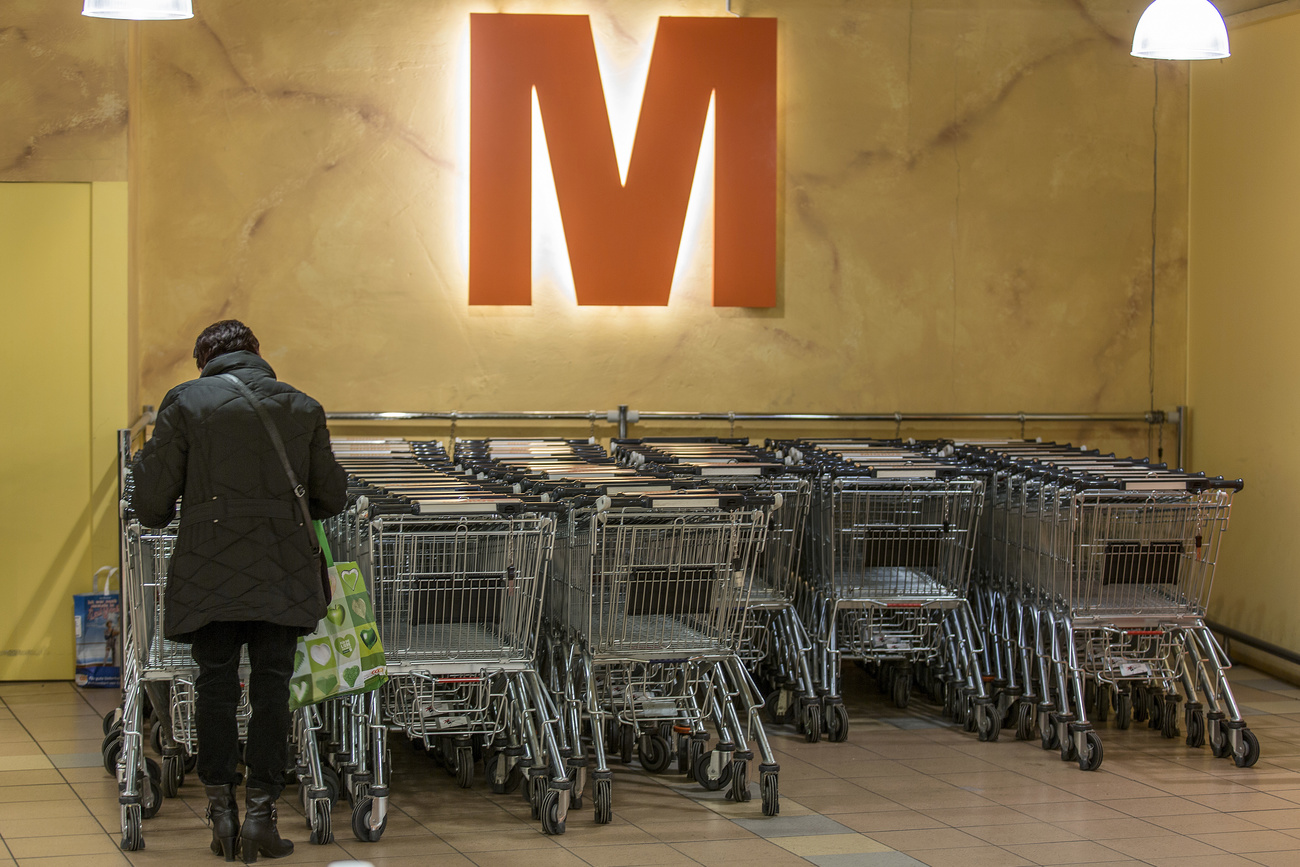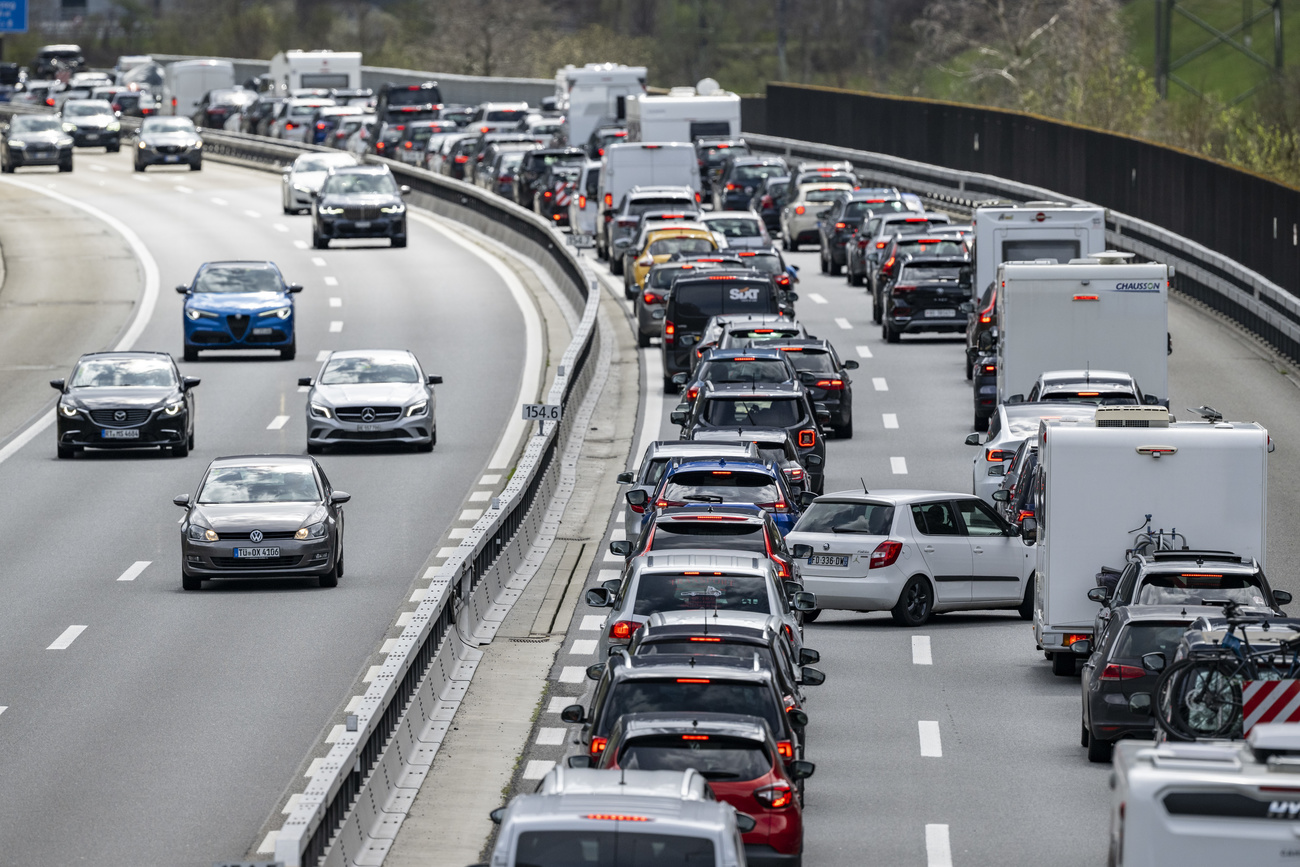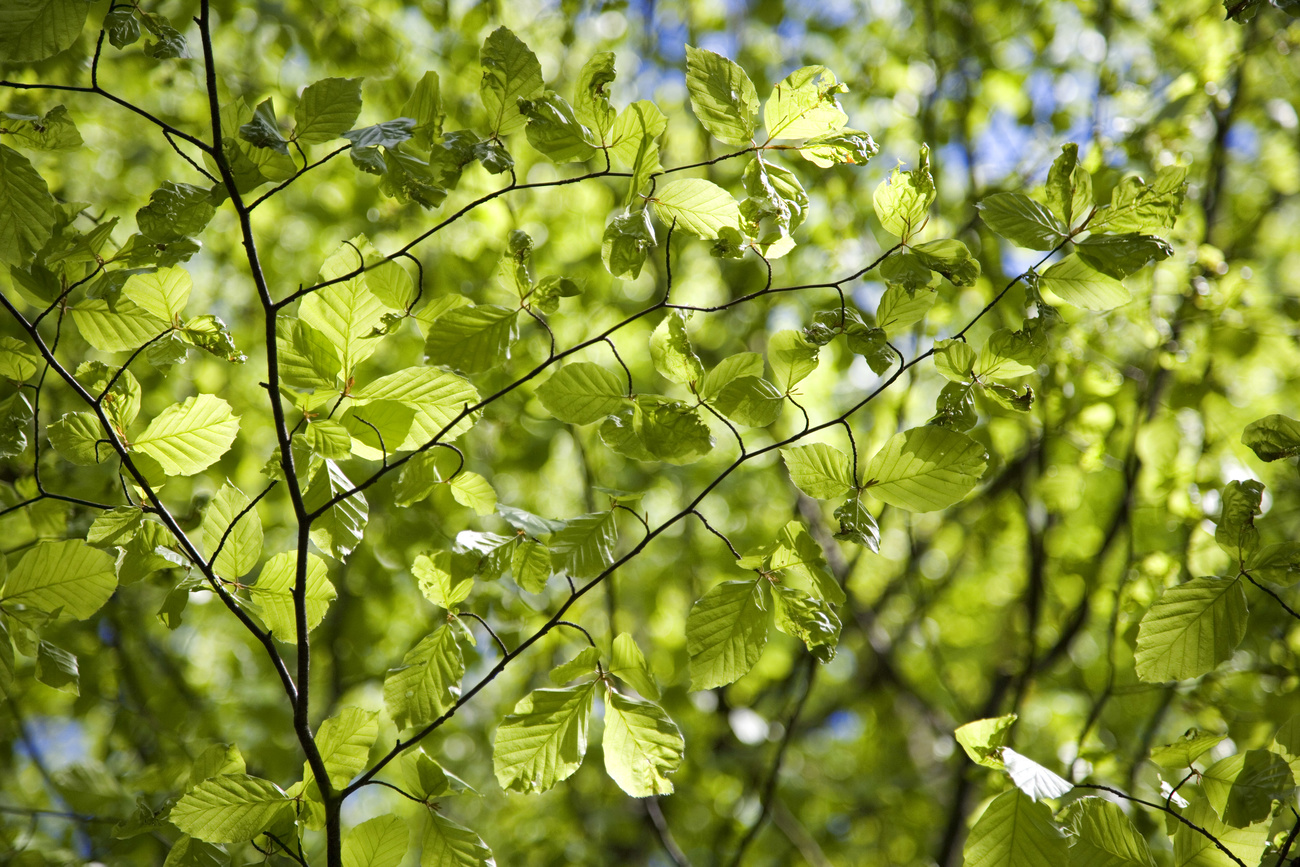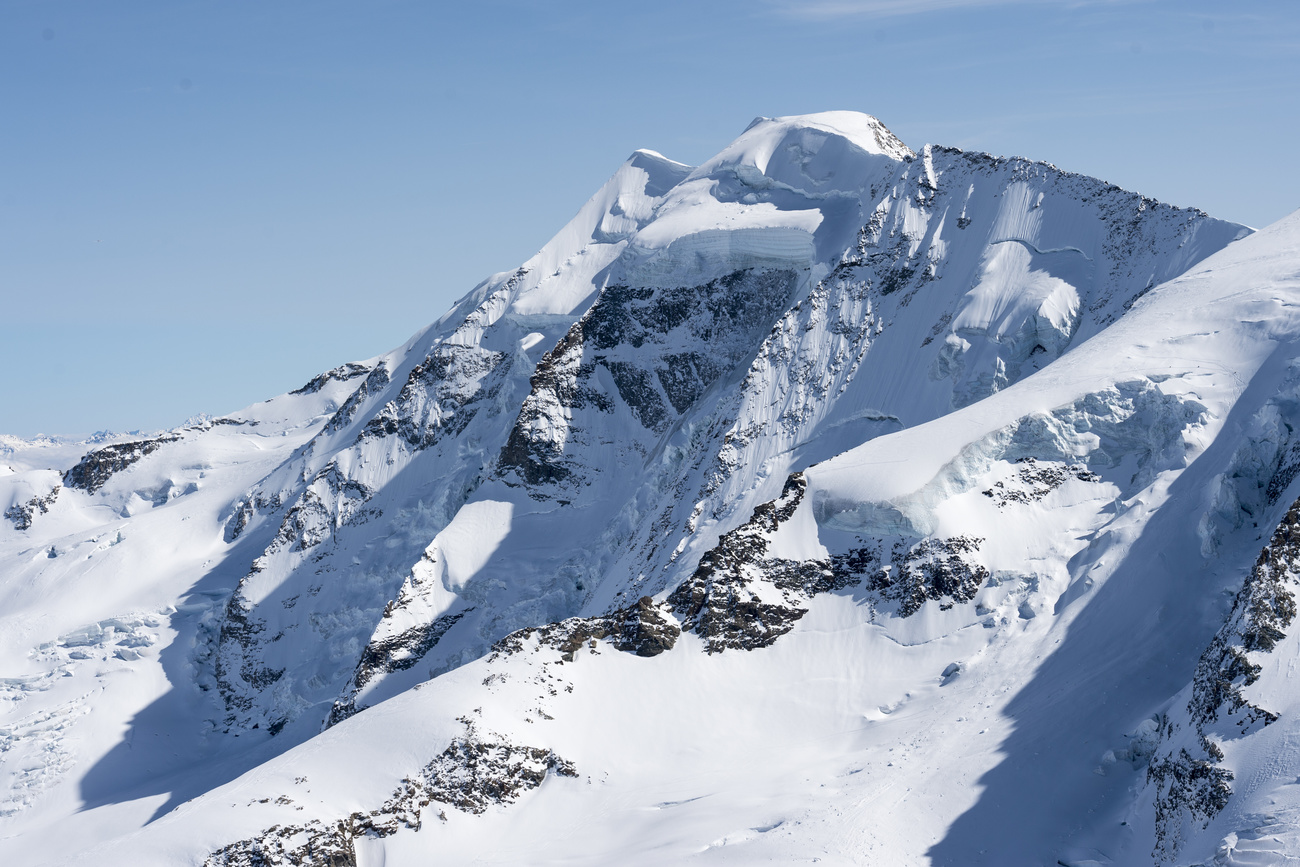Tourists flock to the picturesque Swiss village of Lauterbrunnen every year.
KEYSTONE/© KEYSTONE / ANTHONY ANEX
Charging entrance fees at popular Swiss holiday hotspots only makes sense if overseas guests also gain from the levy, says the Swiss tourism industry.
Do you want to read our weekly top stories? Subscribe here.
The idyllic village of Lauterbrunnen is considering a Venice-style entry charge to ease overtourism. The village is frequently brought to a standstill by waves of tourists keen to soak in its natural beauty and tranquility.
“As long as the measure also benefits the guest, it is accepted and even appreciated,” Markus Brenner, spokesperson for Switzerland Tourism, told Swiss public broadcaster SRF.
More
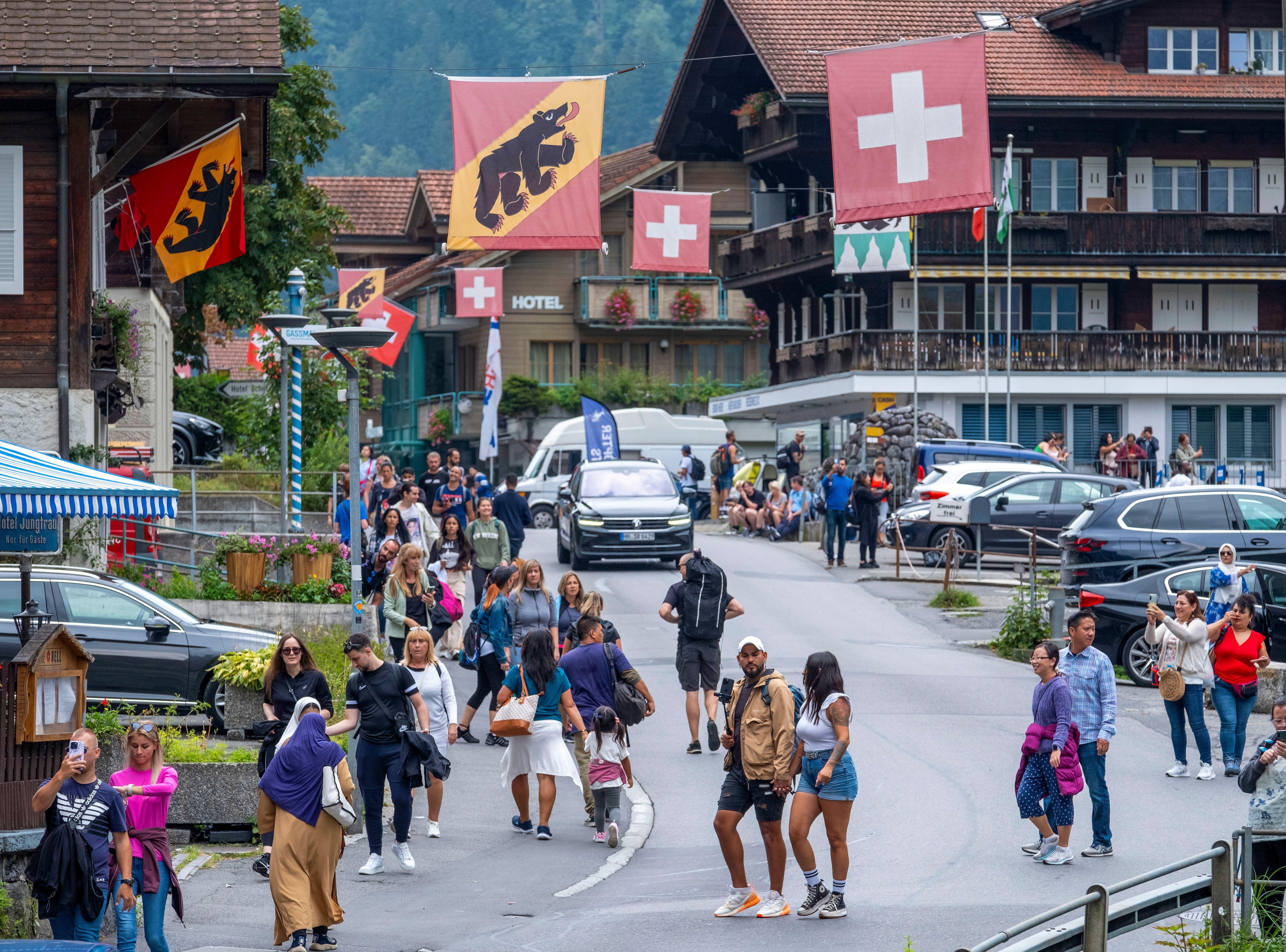
More
Swiss village of Lauterbrunnen mulls Venice-style tourist entry charge
“When I go to Lauterbrunnen, I know that I will have to pay the fee, but I will definitely find a parking space. I also know that the number of guests in the valley is limited.”
“It must also be understandable for guests, and clear what they will receive in return.”
Victim of own success
Brenner says overtourism in Switzerland is confined to specific locations at certain times of the year. He dismissed the suggestion that the country is constantly over-run with tourists and called on locals to show tolerance.
“We are all used to a certain amount of pressure – for example in the morning on the tram, at the weekend when shopping or in rush hour traffic in the car,” he said.
+ “Like employees in a theme park”: Swiss overtourism
“The question now is how to deal with it.”
Lauterbrunnen, in the Bernese Oberland, is not the only tourist hotspot to feel a victim of its own tourism success.
The nearby lakeside village of Iseltwald was brought to a standstill a couple of years ago by an unexpected influx of fans of Netflix series Crash Landing on You.
The spectacular Äscher-Wildkirchli guest house in Alpstein, canton Appenzell Inner Rhodes, Ticino’s Verzasca valley and the city of Lucerne are also feeling the crush.
Switzerland Tourism is trying to ease the burden by advising people from separate countries to arrive at different times of the year if possible.
More
“With a good mix of guests from different markets of origin, we can help ensure that we have a more balanced tourism burden in Switzerland,” said Brenner.
Adapted from German by DeepL/mga
This news story has been written and carefully fact-checked by an external editorial team. At SWI swissinfo.ch we select the most relevant news for an international audience and use automatic translation tools such as DeepL to translate it into English. Providing you with automatically translated news gives us the time to write more in-depth articles. You can find them here.
If you want to know more about how we work, have a look here, and if you have feedback on this news story please write to english@swissinfo.ch.
External Content
